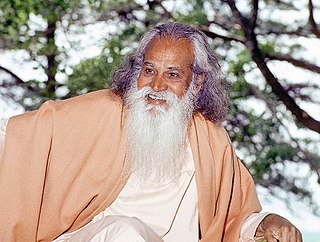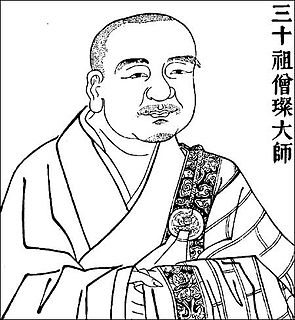A Quote by Swami Vivekananda
The chief helps in this liberation are Abhyasa and Vairagya. Vairagya is non - attachment to life, because it is the will to enjoy that brings all this bondage in its train; and Abhyasa is constant practice of any one of the Yogas.
Related Quotes
Just seeing the fact that this is an attachment, that attachment is a bondage - a beautiful word for bondage - that attachment is not love... just seeing the ugliness of attachment - it drops; then arises love. The same energy that was becoming attachment, released from attachment becomes a totally different energy; it becomes love.
Concentration is not thinking of one thing. On the contrary, it is excluding all thoughts, since all thoughts obstruct the sense of one's true being. All efforts are to be directed simply to removing the veil of ignorance. Concentrating the mind solely on the Self will lead to happiness or bliss. Drawing in the thoughts, restraining them and preventing them from straying outwards is called detachment (vairagya). Fixing them in the Self is spiritual practice (sadhana). Concentrating on the heart is the same as concentrating on the Self. Heart is another name for Self.
Attachment brings misery, unattachment brings blissfulness. So use things, but don't be used by them. Live life but don't be lived by it. Possess things, but don't be possessed by them. Have things - that's not a problem. I am not for renunciation. Enjoy everything that life gives, but always remain free.
The near enemy of love is attachment. Attachment masquerades as love. It says, “I will love this person because I need them.” Or, “I’ll love you if you’ll love me back. I’ll love you, but only if you will be the way I want.” This isn’t love at all - it is attachment - and attachment is rigid, it is very different from love.
Devotion gradually progresses to higher levels. . . . One type goes to God and asks Him to remove his suffering. Another one will ask for money or material things. A third will request liberation or release from his bondage. And the fourth will not ask for anything. He will just enjoy praying and praising his Lord. That is the highest form of prayer. (Beyond Word, 119)
































